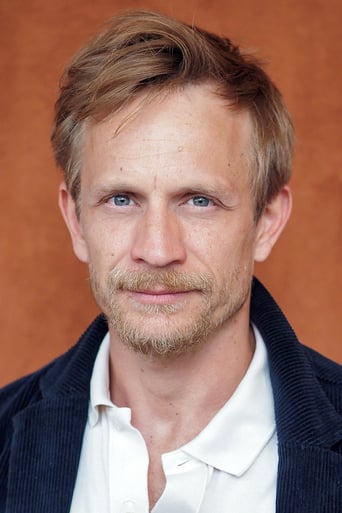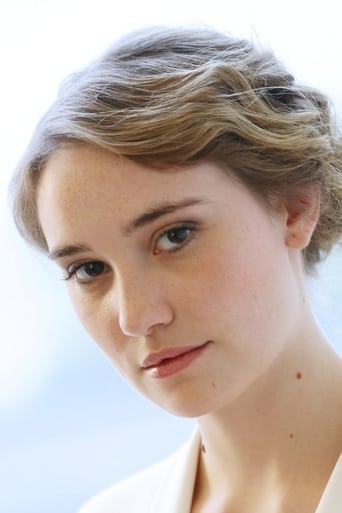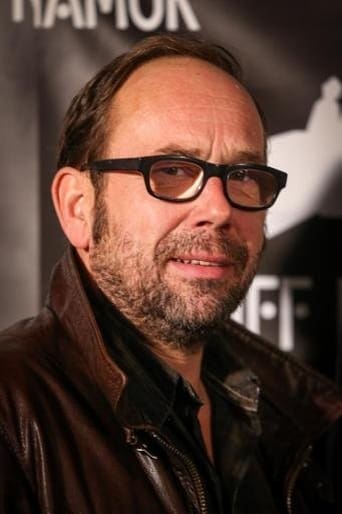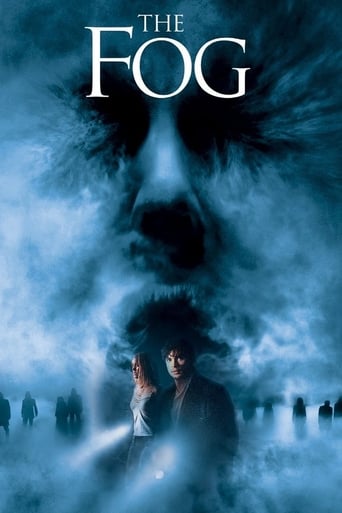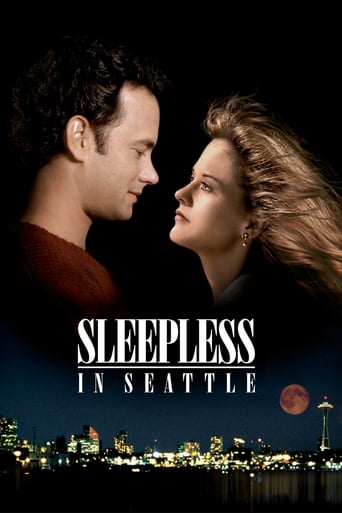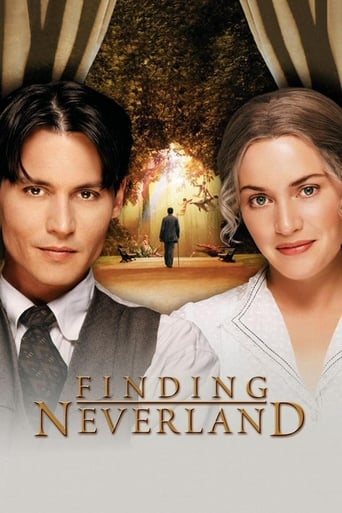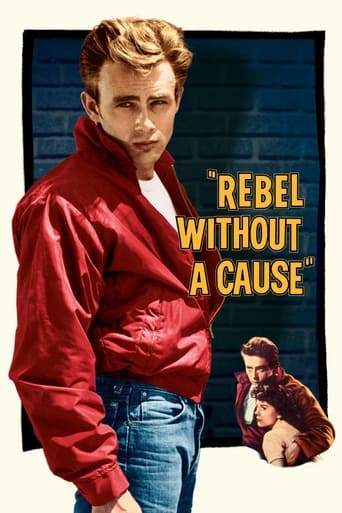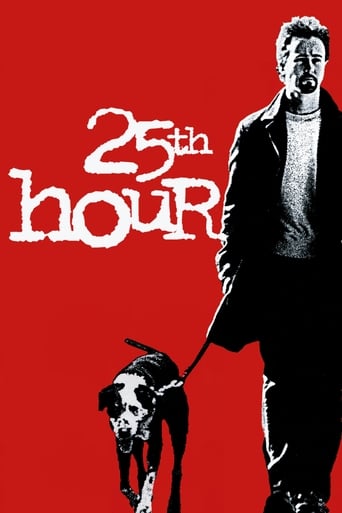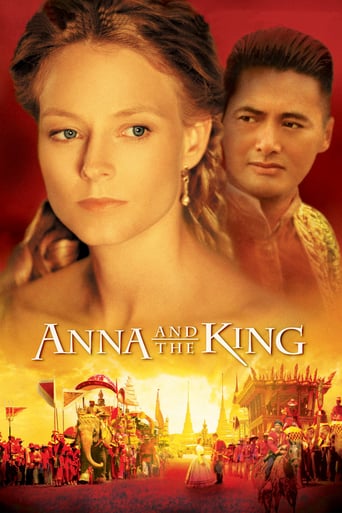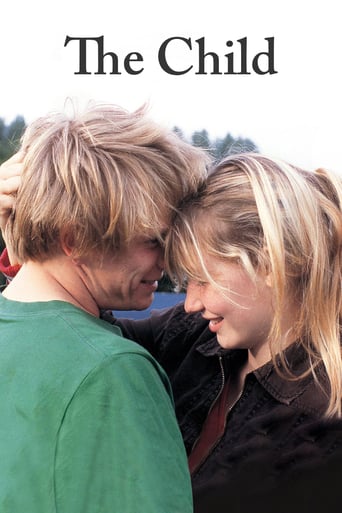

The Child (2006)
Bruno and Sonia, a young couple living off her benefit and the thefts committed by his gang, have a new source of money: their newborn son. Bruno, 20, and Sonia, 18, live off the young girl's allowance and the petty thefts committed by him and his gang. Sonia has just given birth to Jimmy, their child. The carefree Bruno, who until then had only cared about the here and now, must now learn to become a father.
Watch Trailer
Cast
Similar titles
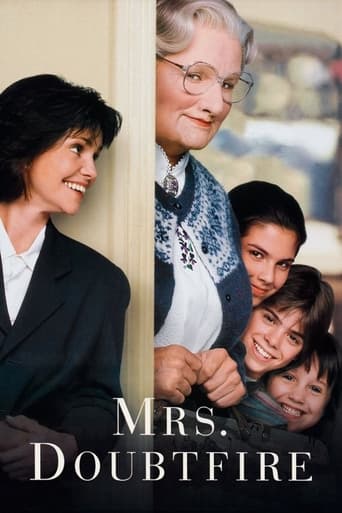

Reviews
Expected more
everything you have heard about this movie is true.
Best movie ever!
I think this is a new genre that they're all sort of working their way through it and haven't got all the kinks worked out yet but it's a genre that works for me.
Belgian screenwriters, producers and directors Jean-Pierre and Luc Dardenne's sixth feature film which they wrote and co-produced, premiered In competition at the 58th Cannes International Film Festival in 2005, was screened in the Masters section at the 30th Toronto International Film Festival in 2005, was shot on location in Seraing, Liège in Belgium and is a Belgium-France co-production which was produced by French producer Denis Freyd. It tells the story about a nineteen-year-old man named Bruno who makes a living as a criminal in a city in Belgium where he hangs out with adolescent boys and lives with his girlfriend named Sonia. After Sonia has given birth to their first child, they are evicted from the apartment they have been living in, and Bruno decides to get himself involved in more serious criminal activity to support his girlfriend and their new-born son named Jimmy.Distinctly and engagingly directed by Belgian filmmakers Jean-Pierre and Luc Dardenne, this finely tuned fictional tale which is narrated from multiple viewpoints though mostly from the male protagonist's point of view, draws a vital, gripping and prominently authentic portrayal of how a Belgian couple's relationship is altered after they become parents for the first time. While notable for it's distinct and naturalistic milieu depictions, sterling cinematography by Belgian cinematographer Alain Marcoen, production design by production designer Igor Gabriel, costume design by costume designer Monic Perelle and use of sound, colors and light, this character-driven and narrative-driven story about a man's unusual ways of coming to terms with becoming a father and how instantly and poignantly affected his life is by the arrival of his first son, depicts two isolating and merging studies of character. This down-to-earth, at times conversational and at times humorous drama from the mid-2000s which is set during the course of five days in a municipality of Liège in Belgium in the 21st century and where a newly mother is expecting her boyfriend to be the family provider and he figures that the best way to fix the situation they have gotten themselves into is by selling their infant, is impelled and reinforced by it's stringent narrative structure, substantial character development, rhythmic continuity, dense examination of its central themes and Bruno's internal changes, scenes between Bruno and Sonia and Bruno and Steve and the reverent acting performances by Belgian actor Jérémie Renier and French actress Déborah Francois. A consistently dramatic, charmingly romantic and increasingly heartrending narrative feature which gained, among other awards, the Palme d'Or at the 58th Cannes Film Festival in 2005.
Continuing their exploration into the human condition, Jean-Pierre and Luc Dardenne's fourth feature, The Child, brings us into the world of Bruno (Jeremie Renier) and Sonia (Deborah Francois) a young couple who have just had their first child. When we are introduced to the couple, it is after Sonia has gotten out of the hospital and she returns home to find that Bruno, who hadn't gone to see her at all, has sublet their apartment to strangers for a few days to make some quick cash. It's a hell of an introduction for Bruno, and things only digress from there as we find out that he's willing to do just about anything to make some money.The title of the film could literally be applied to the child itself, the catalyst for the narrative events that occur, but it's no stretch to say it instead refers to Bruno, more of a child than anyone else in the picture. He is a young man with seemingly no regard for others and no moral compass, refusing to get a regular job, living from one scheme or theft to another and using pubescent children to run thefts for him. This is a fascinating character to study and one that is ripe for exploration from filmmakers as talented and intimate as the Dardennes.They once again bring their trademark style into the streets, with no musical score and the use of hand-held cameras that bring the audience along with Bruno, seemingly never staging shots but instead letting them all come organically, whether they be out of focus or off-angled. It puts us right there in the dirt with him and is at least part of what makes watching him so fascinating, as opposed to deeply frustrating.Bruno is a deplorable creature, but there's something about him that drew me in, that intrigued me all the way and when he was in danger actually wanted him to escape. I cared for this wandering soul, something that I never would have expected from the opening stages of the film. A lot of this credit must go to the Dardennes, but plenty should be shared with Jeremie Renier, whose portrayal of Bruno is never one of judgment but also never one that tries to make him any more likable than he is supposed to be. The authenticity of this performance is tremendous and there is never a moment where it feels that you're watching an actor perform. It's a shockingly lived-in portrayal, something that comes with the territory of being in a Dardenne production.The brothers restrain their actors, making them pull in their emotions rather than let them out, a technique which is much more interesting and natural than having a shouting match occur every five seconds. Instead, it's the physicality of this world that is able to make the most impression. Bruno and Sonia live very much on the edge, sleeping in a makeshift shack by the beach or homeless shelters at night, and there's a grittiness that the Dardennes are able to achieve which is astounding. You can feel the rocks in their hands, and when moments come like Bruno getting beaten or having to jump in freezing water occur, they are the real emotional spikes of the story and the outlets for all of the anguish that is bottled up throughout.Bruno is certainly the child that the title refers to, but Sonia isn't much of an adult either, the two of them horse-playing constantly from the beginning, whether it's spraying each other with soda or tossing rocks at one another even when they have their infant in their arms. These are tragically irresponsible youths, but in Sonia you can see something is changing with their new responsibility. The film explores the love between a mother and child in a delicate, heartfelt manner that is a stark contrast to the modern decay explored through Bruno. For while Sonia is already experiencing her change, Bruno still has a little bit to fall.The Child is a coming-of-age story in a most peculiar fashion, as Bruno's selfishness strips away the world around him and he has to realize the person he is. He's forced to look in the mirror and assess the image that everyone else looks at. The intimacy, the vividness of the Dardennes work is unparalleled in modern cinema and it makes moments that could feel pedestrian in another films become never ending sequences of breathtaking suspense here. When Bruno and one of his young hoodlums steal a purse and are pursued, my heart practically stopped out of fear and exhilaration. They make you feel every moment of this character's world, and the film is as much of an exploration into the ravaged, decayed society as it is a study of Bruno himself.The Dardennes keep the high emotions in check for the majority of the film, and when they finally allow us a moment to let it out at the end, there's a feeling of completion with these characters. The young couple weeps together openly, but it's a scene void of dialogue between the two and that leaves it's true meaning open to interpretation for the viewer. Is it a moment of forgiveness, of reprieve or just a devastating act of agony, unable to come to terms with the circumstances of life they have put themselves in? No matter what it means, it's an incredibly powerful moment that allows for a full emotional catharsis for both the characters and the audience.
I will admit up front that I didn't watch this entire movie. Why? Because I couldn't make it past the first 30 minutes.The mother and father are portrayed as adult children with a child of their own. I suppose if I had kept watching, the father, Bruno, would be revealed to be the true infant who proceeds to grow up during the film.Whoever wrote and directed this movie obviously has no experience with childbirth. The young lady who has just given birth is shown dashing around, chasing and being chased by her boyfriend, and also telling him she wants to sleep with him. I've given birth 4 times, and can guarantee you that running, chasing, and sex are not something that new moms are capable of doing! Ridiculous.I only scored this 3* because I didn't see the whole thing, and perhaps it gets better as it goes on. Please, don't waste your time.
Short, direct and poignant,'L'Infant' is the story of Bruno, an irredeemably feckless young man, who finds himself utterly out of his depth on becoming a father. Bruno's sense of irresponsibility is tragic, but so extreme as to be comic as well; yet he wins our sympathy because he is not innately wicked, and even acts in accordance with a certain moral code: it's just that this code is that of a child, and wholly insufficient for adult life. The film is shot in a sparse, documentary style, there's a little visual poetry in its depiction of the underbelly of urban Belgium, but in essence this is a well-acted, fresh and economical movie, without pretensions of any sort; but whose realism imparts power, particularly to a couple of understated, but truly horrific scenes that made me nervous in my seat.
